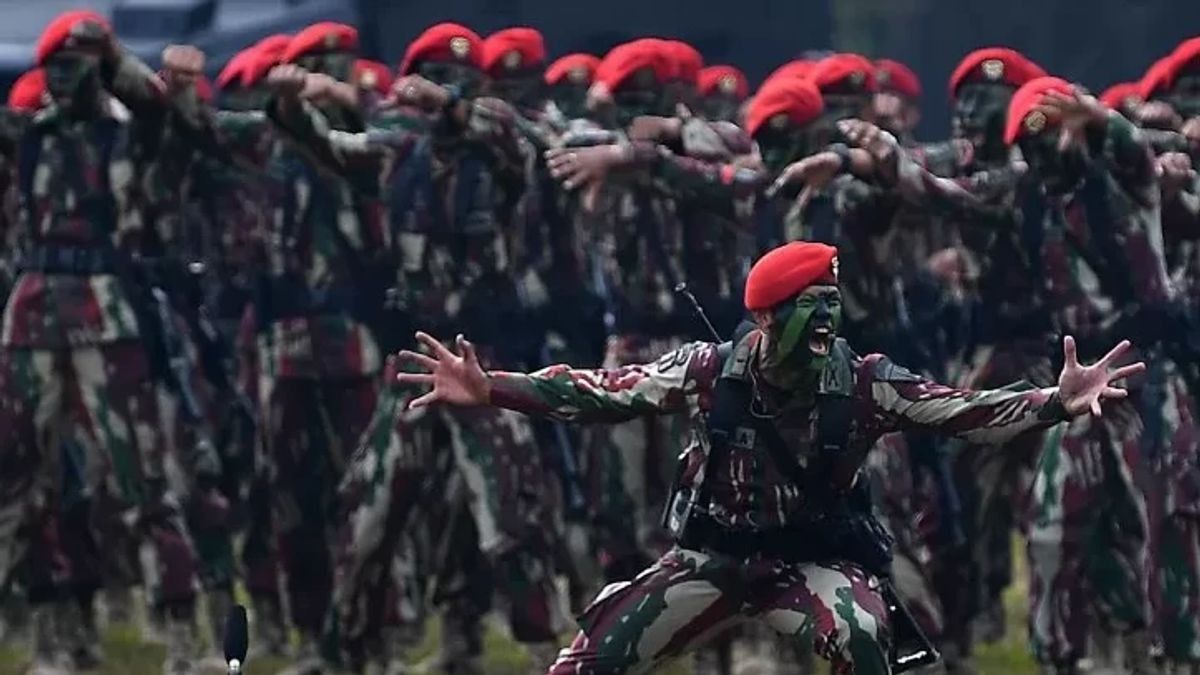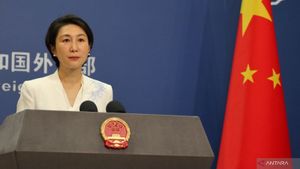YOGYAKARTA The 18th DPR RI Plenary Meeting for the V Session Period for 2023-2024 which was held last Tuesday approved the revision of the Indonesian National Army Law (TNI) Number 34 of 2004 to the DPR Initiative Proposal Bill. Check out the points of revising the TNI Law which can be highlighted in the following reviews.
Quoting Antara, the approval of the revision of the TNI Law into a bill proposed by the DPR RI initiative was carried out in conjunction with three other revisions of the law, namely the State Ministry Law, Immigration Law, and the Police Law.
Chairman of the Legislation Body (Baleg) of the DPR RI, Supratma Andi Agtas, said that the revision of the TNI Law would, among other things, regulate the extension of the retirement age limit and the filling of ASN positions by TNI soldiers.
In the draft bill, there are several points that are in the spotlight. So, what are the points highlighted?
1. Retirement age for TNI soldiers
Article 53 of Law Number 34 of 2004 concerning the TNI states that TNI soldiers with the rank of officers can serve until the age of 58 years. Meanwhile, soldiers with the rank of non-commissioned officers and enlisted personnel will retire when they are 53 years old.
In the draft TNI Bill Article 53, soldiers with the rank of officers can serve until they are 60 years old. For non-commissioned and non-commissioned soldiers, the retirement age has been increased to 58 years.
For soldiers who occupy functional positions, they can carry out military services until the maximum age of 65 years, according to statutory provisions.
"Especially for high-ranking 4-star officers, soldiers can be extended to the service period of their soldiers a maximum of 2 times stipulated by the Presidential Decree," the bill reads, quoted by VOI, Thursday, May 30, 2024.
2. TNI may occupy civilian office
The next point in the spotlight is that the TNI, which is still active, can occupy positions in ten institutions or Ministries according to the needs of related institutions, as long as there is a request from the heads of non-departement government departments and institutions, and must comply with applicable administrative provisions.
The ten institutions or Ministries that can be occupied by TNI soldiers are the Coordinating Office for Political and Security Affairs, State Defense, Presidential Military Secretary, State Intelligence, State Passwords, National Security Institutions, National Defense Councils, Search and Rescue (SAR) National, National Narcotics, and the Supreme Court.
Whereas in Law no. 34/2004, TNI soldiers are only allowed to occupy civil office after resigning or retiring from the active military service.
3. TNI Position
According to Article 3 paragraph (1) of Law no. 34/2004, the TNI is domiciled under the president in the deployment and use of military force. Paragraph (2) states that the TNI is based under the coordination of the Department of Defense in defense policies and strategies as well as administrative support.
However, in the draft revision of the TNI Law, the Indonesian National Army is domiciled as a state security tool. If this bill is passed into law, the TNI will become a state tool in the field of defense and national security based under the president.
Whereas in Law no. 3/2022 concerning National Defense, it is stated that the National Police acts as a state tool that maintains security and public order with the task of protecting, protecting, serving the community, and enforcing the law.
SEE ALSO:
4. The TNI Commander has a representative
So far, the TNI commander has been working without being accompanied by representatives. However, in Article 13 paragraph 3 of the TNI Bill, it was stated that there was the position of Deputy TNI Commander to accompany the TNI commander.
"Panglima is assisted by a deputy commander-in-chief with the rank of a high-ranking four-star officer," reads the proposal listed in the draft revision of the TNI Law.
This is information about the points of revision of the TNI Law which can be highlighted. Get news updates of other options only on VOI.ID.
The English, Chinese, Japanese, Arabic, and French versions are automatically generated by the AI. So there may still be inaccuracies in translating, please always see Indonesian as our main language. (system supported by DigitalSiber.id)













